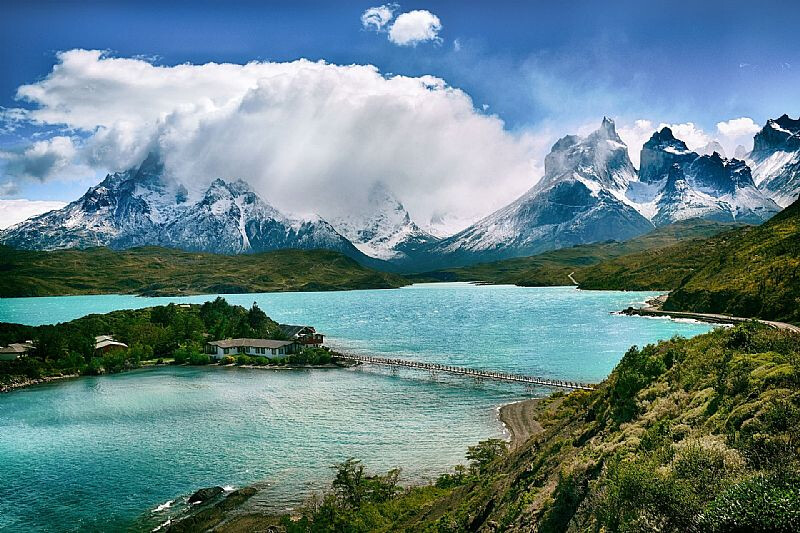
Chile boasts a vast territory, spanning over 4,000 kilometers of coastline and diverse mountainous terrain. Among its many gems, the Los Ríos region stands out as a unique destination where rich biodiversity, Mapuche culture, and sustainable tourism harmoniously coexist. Its snow-capped mountains, clear lakes, and temperate forests offer a special experience for travelers seeking a deep connection with nature.
A Destination Where Nature and Culture Converge
Tourism in the Los Ríos region goes beyond scenic beauty, emphasizing interaction between visitors and the local community. Here, one can enjoy a wide array of activities, from winter sports to visits to private parks, hot springs, and urban wetlands. These experiences present an ideal model where environmental preservation and enjoyment go hand in hand.
In winter, the Mocho-Choshuenco National Reserve is a premier attraction. Its snowy mountains offer trekking, climbing, and snowshoeing trails suitable for all levels, from beginners to experts. Furthermore, Neltume Park provides a mystical landscape of lush forests, waterfalls, and rare flora and fauna. Landmarks like the Huilo Huilo Waterfall allow visitors to feel the resilience of the Patagonian ecosystem.
The Rañintulelfu hot springs in the Los Ríos region are an excellent example of sustainable tourism. By blending local myths with modern amenities, they offer genuine relaxation without harming the natural environment. The city of Valdivia also serves as a hub for environmental education through its urban wetlands and parks. The sea lions found along the Valdivia River are a special symbol of how urban life and wildlife coexist in this region.
An Invitation to Sustainability
Ecotourism in the Los Ríos region encompasses not only nature but also cultural and culinary experiences. Traditional cafes, local markets, and art parks show that sustainability can be pursued in every aspect of a trip. Despite having a convenient transportation infrastructure, the true value of this region lies in the opportunity for respectful and responsible travel.
The ecotourism model here offers a way to pass on beautiful natural landscapes to future generations without compromising the enjoyment of the present. Especially in an era of intensifying climate change, ecotourism in the Los Ríos region is emerging as the most sensible and necessary alternative.
The Value and Future of Ecotourism
Ecotourism is more than just a travel experience. Environmentally, it contributes to ecosystem preservation by reinvesting a portion of the profits into maintaining protected areas and ecological restoration projects. Socially, it strengthens the unique identity of the region, such as the Mapuche culture, and creates stable jobs in rural areas. Economically, unlike mass tourism where profits are concentrated in large corporations, it promotes a fairer distribution of wealth by benefiting small businesses and local guides. The Los Ríos region sets an example of ecotourism that encompasses environmental, social, and economic benefits, paving a new way for sustainable development.
[Copyright (c) Global Economic Times. All Rights Reserved.]




























